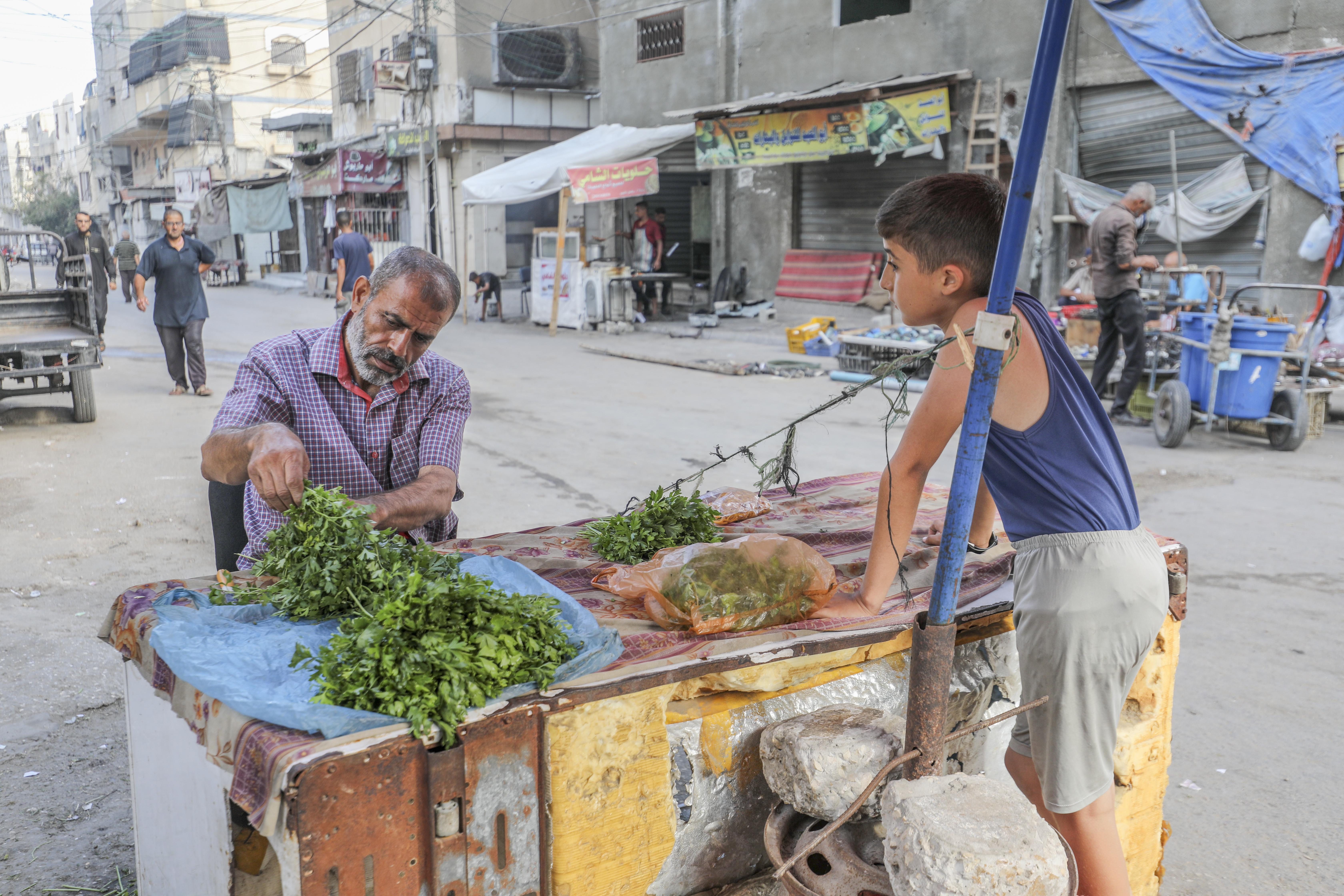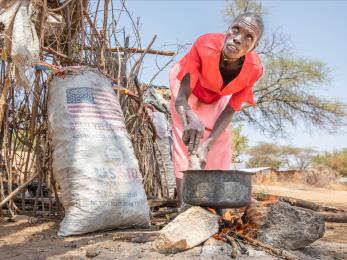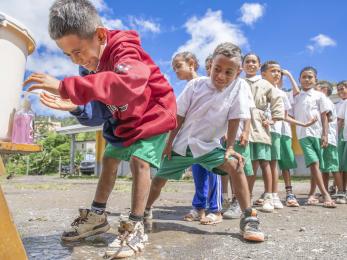In Mongolia, winter looms on the edge of the earth
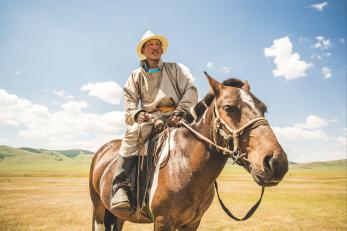
Mongolia is a story of extremes, and how it wears on Batsaikhan depends on the season. In June, grass carpets the steppe to the edge of every horizon. It’s herding weather, clear and mild, and from the back of a horse, his way of life looks limitless.
But the clear skies betray a certain truth of living here. Batsaikhan has around 100 cows, and marching through them on horseback he recalls a few years ago, when he had 70, and a summer like this one gave way to a relentless dzud — an especially vicious winter that pounds the land with snow and ice, freezes the steppe, and starves entire herds—which left him with fewer than a dozen animals.
So when Batsaikhan sees the land, he sees something looming. A feeling that soon the clouds will gather and the sun will slip away. This brittle grass is all he will have to sustain his animals through the coming dzud, and each day he feels the tug of an old stress resurfacing — it hasn’t rained here in over a month.
In the calm of summer, winter is coming.
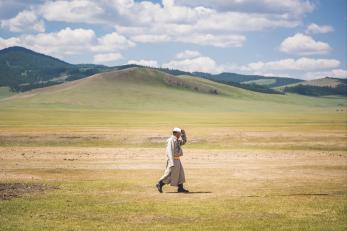
A herder’s life is a study in solitude. Mongolia is the world’s 18th largest country with the 137th largest population — an expanse of land that would stretch from New York to South Dakota, filled only with the population of Chicago. On average, there aren’t even two people per square kilometer.
It’s one of the most challenging lives on earth. Animals outnumber people here by a factor of 20, and every year more of them compete for less land that’s warming nearly twice as fast as the rest of the planet. The government estimates that climate change has degraded 70 percent of Mongolia’s pastoral land. An unusually dry summer, like this one, foretells a savage winter, where temperatures can plunge to an inhuman minus 50 degrees Fahrenheit.
Batsaikhan has to keep his animals alive because they are what keep his family alive. Like all herders, Batsaikhan’s family lives off the milk, yogurt, cheese, and mutton from their herd. So when the dzud threatens their animals, it really threatens them.
That used to be a once-in-a-decade worry, but now the dzud seems to come almost annually. And Batsaikhan — whose wife is pregnant with their fourth child — is left to reckon with it the same way every herder in his family has done for centuries: alone.
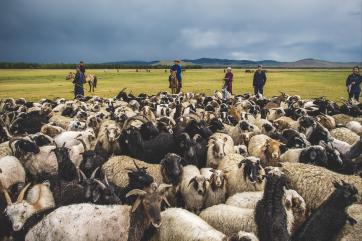
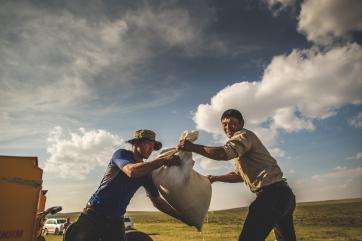
Last year, however, Batsaikhan got through the dzud with 90 percent of his herd intact — a major improvement that could be worth thousands of dollars. When the first grasses began to freeze, he says, he was ready, because of a tool he had never had before: a small paperback book.
Batsaikhan was one of 20,000 herders last year that Mercy Corps provided with a Dzud Lessons book, which contains 250 tips from experienced herders on how to predict winter weather and care for animals when it hits. The lessons were life-saving for his animals, he says, and life-changing for him.
“Last winter was really harsh,” he says, “so I had to look up in my book the tips that were provided, and I was able to feed my animals with the fodder.”
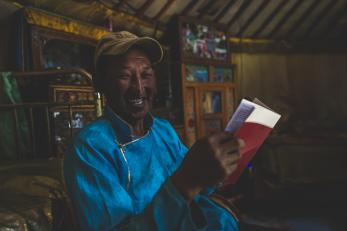
Dzud books are just one way Mercy Corps is strengthening Mongolia’s herders. We are also facilitating livestock vaccinations and antibacterial dipping, as well as pioneering an SMS weather forecasting system that gives herders up-to-the-minute forecasts via text message.
There are no permanent houses in rural Mongolia; families shelter within round canvas gers they pop up and disassemble to move with their herds. That makes getting accurate and timely weather reports—which usually come only via TV or radio — almost impossible.
“[The SMS system] has been very useful for us, because we need to know whether it is going to be windy, or if there will be snowstorms, and so on, so we can keep our animals close or we can pasture them far away,” says Sugar, 60, who owns a small livestock breeding company. “When we get the information if a storm is coming, then we go after our animals and bring them back so that they can stay closer and be safe.”
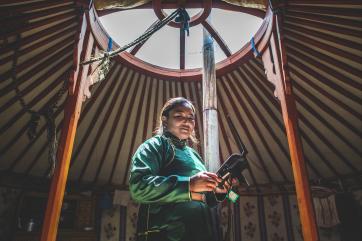
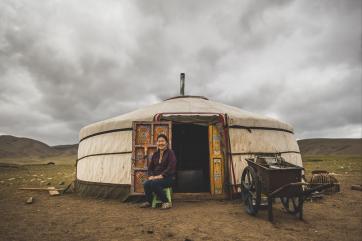
Nearby, 33-year-old Enkh-Erdene has benefited from fodder seeds Mercy Corps provides to help herders plant more grass for their animals. Though winter is still months off, the seeds have already sprouted a chain reaction: other herders have seen the results and asked him to help them with their land. That grass will produce stronger cows, which in turn will bear healthier calves in winter.
“The seeds are growing now, so we can see the results,” he says.
“Our peers are very supportive of me. They can see what I am doing, and they are supporting and encouraging by saying, ‘We will see what you produce. We will support you.'”
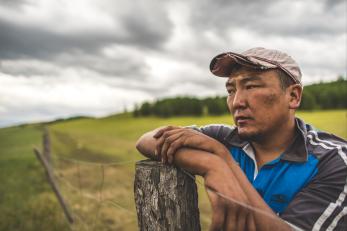
In a way of life that stretches back millennia, building a stronger future comes in degrees: a small change here, a new idea there, which compound in little ways to make a family more resilient.
What a Dzud Lessons book can do for Batsaikhan, a text can do for Sugar. And to Enkh-Erdene and thousands of herders like him, even a bag of grass seed—long before it breaks through the ground—is enough to help a future take root.
“We have this nomadic, pasture-styled livestock husbandry, and the move to farming … is a shift towards building resilience,” Enkh-Erdene says. “That is my opinion: the move from livestock husbandry to intensified farming is a step forward.”
